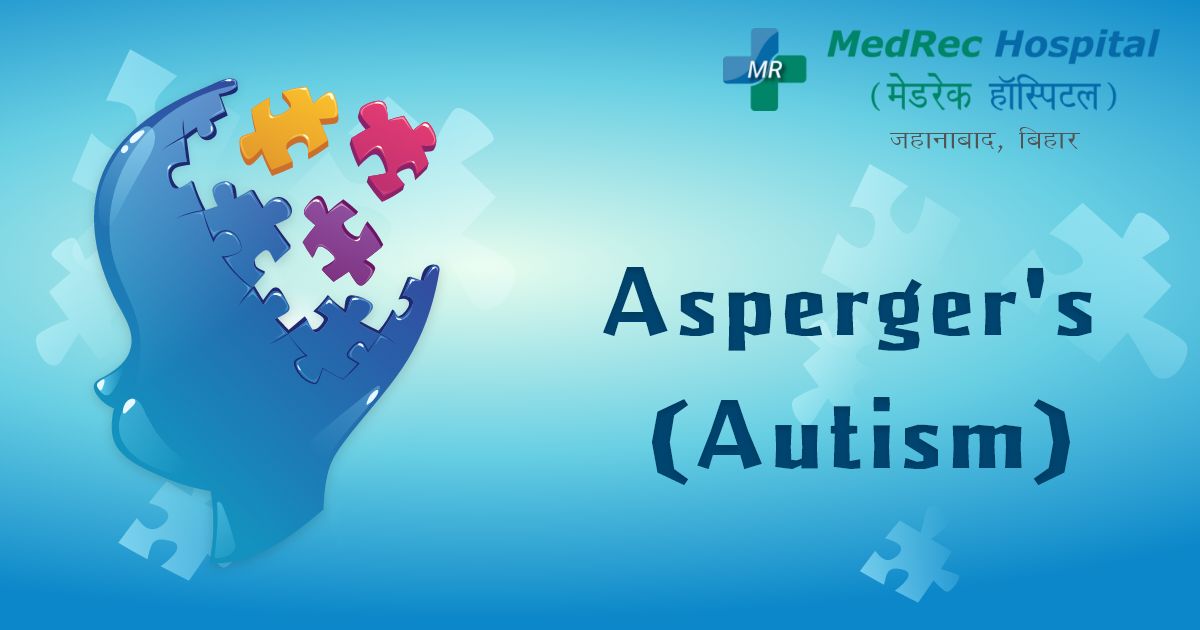
Asperger : What is Asperger's Syndrome & How does it Affect?
793
When you first encounter someone with Asperger's syndrome, you could immediately notice two things. They are equally intelligent as everyone else, but they struggle more with social skills. They frequently repeat the same activities or exhibit excessive attention to one particular subject.
Asperger's was once treated separately by doctors. Asperger's syndrome is no longer considered a stand-alone diagnosis in the modern world. It now falls within the umbrella of the autism spectrum condition (ASD). These linked illnesses have certain symptoms in common. Asperger's is still a word that is used.
The disorder is a kind of ASD recognized by doctors as "high-functioning." The symptoms are therefore less severe than those of other autism spectrum diseases.
A new diagnosis called social pragmatic communication disorder, which shares some symptoms with Asperger's, is also part of the definition. It is a term used by doctors to describe people with average intelligence who have difficulty speaking and writing.
How to check if you have Aspergers Syndrome?
Consult your doctor if you spot any symptoms in your child. They can suggest one of the following mental health professionals who focuses in ASDs:
Psychologist. They identify and address issues with emotions and behaviour.
Child neurology specialist. They deal with brain disorders.
Child development specialist. They are experts in developmental concerns, including speech and language disorders.
Psychiatrist. They are knowledgeable about mental health issues and are able to recommend medications to treat them.
A collaborative approach is frequently used to address this illness. This implies that you could take your child to more than one doctor for treatment.
The doctor will inquire about your child's conduct and ask questions like:
What signs do they exhibit, and when did you notice them for the first time?
When did your child start talking?
They will then watch your child in various scenarios to see how they act and communicate. The information gathered can then lead to a diagnosis and a good treatment plan.
Symptoms
They begin at a young age. If your child has it, you could notice that they have trouble making eye contact. Additionally, you could notice that your child feels uneasy in social settings and struggles to reply when others speak to them.
They could overlook social clues that are clear to others, such as body language or facial expressions. For instance, they can be unaware that someone is furious when they cross their arms and grimace.
Your youngster may not display many emotions as another indication. They might not laugh or grin when they are pleased. They could also have a flat, robotic tone of voice.
If your child has the disease, they may focus intensely on a particular topic, such as rocks or football statistics, and talk about themselves most of the time. Additionally, they could speak incessantly about a subject that interests them. They could repeatedly do the same actions.
They could detest change as well. For instance, they could eat the same meal every morning or struggle to go from one lesson to the next during the school day.
Treatments
Since every child is unique, there is not a single strategy that works for all of them. To discover the right treatment, your doctor may need to try a few different approaches.
Treatments may consist of:
Social instructions. Therapists work with your child one-on-one or in groups to help them learn how to connect with others and express themselves in more suitable ways. The most effective way to develop social skills is to imitate common conduct.
Language and speech therapy. Your child's communication skills will benefit from this. For instance, kids will learn to talk with a natural up-and-down pattern rather than a flat tone. Additionally, they will learn how to maintain a two-way conversation and recognise social indicators like eye contact and hand gestures.
Behavioral and cognitive treatment (CBT). It facilitates your child's mental transformation, so that they may better manage their emotions and recurring patterns of conduct. Outbursts, meltdowns, and obsessions will be easier for them to control.
Training and instruction for parents. Many of the methods your child is taught will be given to you so you may work on social skills with your child at home. To cope with the difficulties of having a member of the family with Asperger's, some families also seek the assistance of a counselor.
Behavior analysis in practice. It is an approach that promotes your child's good social and communication skills while discouraging undesirable conduct. To achieve improvements, the therapist will employ compliments or other forms of "positive reinforcement."
Medicine. There are no medications expressly authorised to treat Asperger's or autism spectrum diseases. However, certain drugs can assist with associated symptoms including anxiety and despair. Some of these may be recommended by your doctor:
- Inhibitors of selective serotonin reuptake (SSRIs)
- Psychedelic medications
- Stimulating drugs
Your child can learn to manage some of the social and communication difficulties they experience with the correct care. They are capable of succeeding academically and in their adult life.
For further information please access the following resources:
Emergency : +91 89686 77907
Front Desk : +91 98018 79584
Page last reviewed: Mar 6, 2023
Next review due: Mar 6, 2025







.jpg)
.jpg)
.jpg)
.jpg)
.jpg)
.jpg)